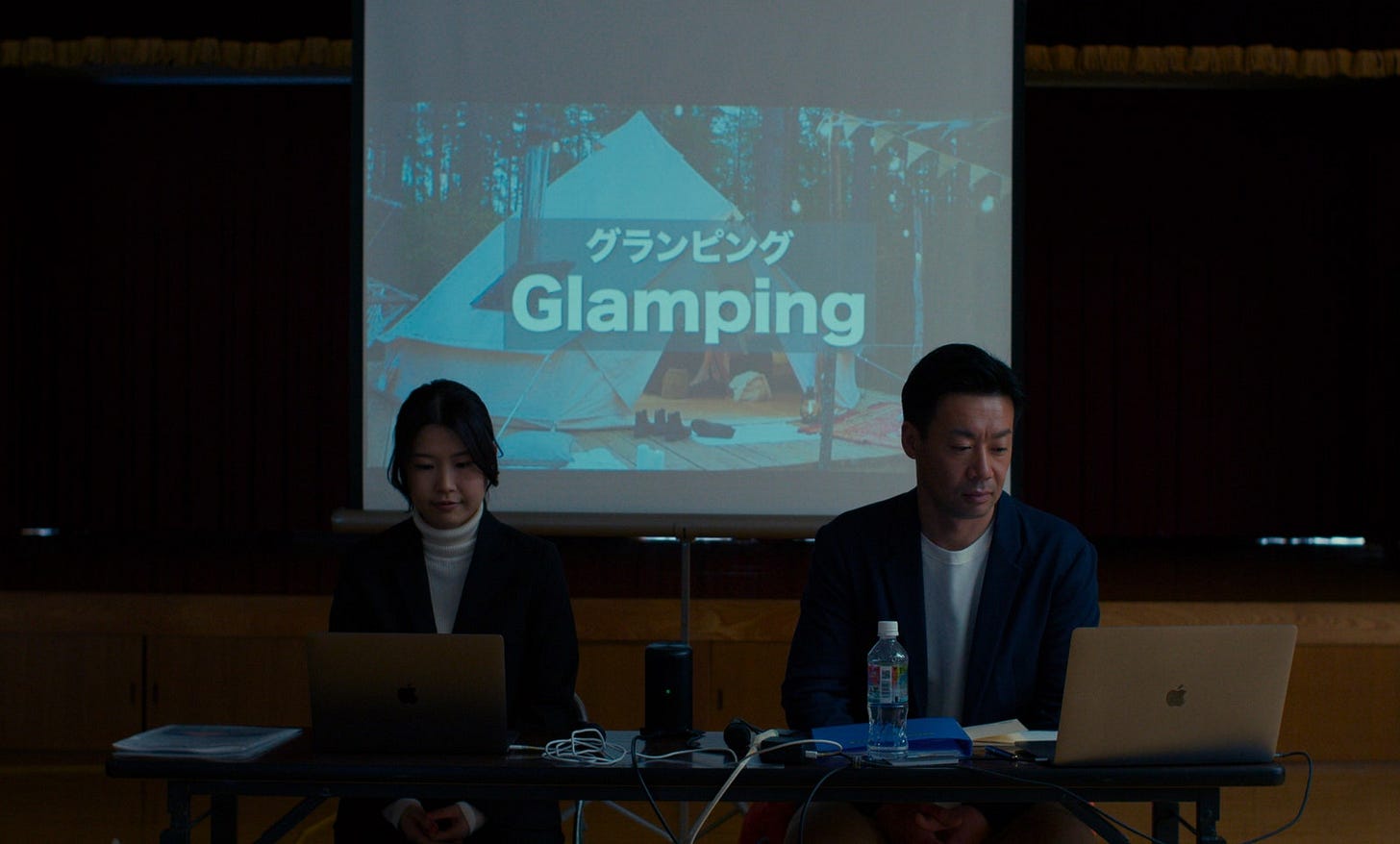You’ve probably already noticed this, but, uh, people are mad right now. Just as concerning as what is causing that anger is the fact that there seems to be no viable channels of recourse - no real way to hold the people responsible for making people mad accountable.
I’m not really here today to talk about the forces that got Donald Trump re-elected or why many people view the CEO killer as a folk hero. Instead, I’m here to talk about a scene in a film that encapsulates the decades-long dynamic that seems to have given rise to these troubling times.
Improbably, I’m referring to a moment in Ryusuke Hamaguchi’s Evil Does Not Exist. The film charts the efforts of real estate developers who want to build a luxury glamping site in a remote mountain community in Japan. The community is unspoiled - spring water collected by its residents is used in locally made udon noodles and children walk home from school through the forest. A glamping site nestled somewhere in it might seem like a low-impact addition to the community, but the locals don’t see it that way.
This all comes to light during a seemingly banal scene in which the locals grill representatives of the real estate firm on their plans. It’s a town hall meeting - nothing more - but Hamaguchi lets it go and go and go, and the townspeople are quickly able to expose serious flaws in the plan. There are no plans to have a caretaker on site 24 hours a day, meaning city folk cutting loose could become quite disruptive. Far worse, the septic system is not adequate if the glamping site is at full capacity, and it is positioned in a place that could threaten a water supply so pure that residents can draw directly from it.
The residents are at once up in arms and diplomatic. The people sent to talk to them are middlemen. They have a video and platitudes and condescension. They collect notes for their boss and have no good answers - no answers at all - for the valid concerns being raised. Even so, an elder, and others in the crowd, seem willing to work with the developers, because what other choice do they have?
We’ve all been experiencing this for decades, so though Hamaguchi includes a follow-up scene where the middlemen share the townspeople’s concerns with their boss and the boss dismisses them almost, we hardly need confirmation that the fix is in.
Hamaguchi doesn’t pay this all off with an angry speech or revenge fantasy later in the film. Indeed, the townspeople go on with their lives, seemingly resigned to the fact that this glamping site will likely be ruinous. Instead, weird things start to happen. Everything is unbalanced, uncertain, and menacing - and mostly because these real estate developers won’t build a slightly larger septic system and put it in a less dangerous place. It’s absurd and short-sighted, and while the townspeople (mostly) aren’t angry, I was seething. I still am.
The truth is, we live in an age where powerful people piss on our legs every day and then tell us it’s raining. To be more accurate, they send other people - patsies - to deliver the forecast. We all know it, and it’s no mystery why people are so upset.
Hamaguchi’s Evil Does Not Exist doesn’t really deal in that anger directly. Instead, it deals in the consequences of what happens when that anger has no obvious path. No wonder streams feature so prominently as a metaphor and no wonder the film’s conclusion is so dream-like, strange and unsettling instead of satisfying.
If you allow rage to build up, you sign up for it to be released in strange and unsettling ways.



